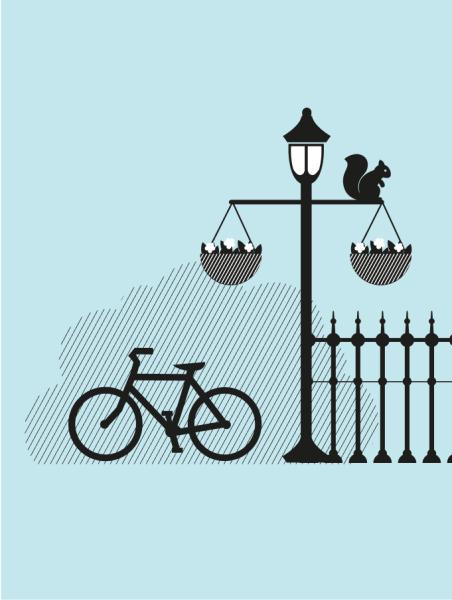How Long After Signing Contracts Do You Complete In The UK?

Once you reach the contract signing stage of the property buying process, you're on the home straight, and that's an exciting time. However, while most of the hard work has been done, there is still a little more to the exchange of contracts process than meets the eye.
If it's your first time, the whole buying process can be a little daunting, and taking the time to understand it a little better can make all the difference. It can also help everything run smoother and faster.
Steps to take before signing contracts
Exchanging contracts can only occur once they are signed, and there is plenty to check over before that can occur.
Before signing the contract, crucial steps include:
- Your offer being accepted by the sellers
- Surveys being conducted
- Relevant Law Society forms (i.e., TA6, TA10) inspected by you
- Valuation carried out by your lender
- Property EPC checked
- Deposit funds ready for transferring
- Parties agreeing to a completion date
- You taking a buildings insurance policy out (as soon as the contracts are exchanged, you assume responsibility for the property)
- Careful revision of all details contained in the contract
- Once everything is in order, the contract can be signed
Related: Considerations When Buying a Flat with a Short Lease
From contract exchange to completion
Typically, the completion date of a property sale will occur anywhere between one and four weeks after the contracts have been exchanged. Exchanging contracts and completing on the same day isn't entirely unheard of, but it isn't an easy thing to pull off.
Many lenders will not agree to completion on the same day as the contract exchange, with their absolute minimum timeframe being five working days.
If a buyer relies on mortgage funds for the property purchase, the conveyancers will typically require one week (five working days) to draw down the funds and send the Certificate of Title to the lender. In the instance of a cash sale and an already vacant property, a same-day turnaround becomes more viable.
Even if you can get a same-day exchange and completion agreed upon, there is no guarantee that it will work out. This can leave buyers in the stressful situation of having everything packed and removalists booked, only for the plan to come unstuck. So unless there is an urgent reason why you need to attempt a same-day process, it's best to plan for a few weeks and relax.
Steps between signing, exchanging and moving in
There are multiple steps to cover between signing and exchanging the contracts and moving in (completion). These include:
- Final check that everything is in order
- Signing the contract
- Paying your solicitor the deposit
- Instructing your solicitor to exchange the contracts
- Preparing for completion - packing to move, arranging removal and utility services, etc.
- Buyer's solicitor sending the Certificate of Title to the lender
- Lender releasing funds after final checks
- Seller's solicitor confirming that the funds have been received
- Keys are handed over
- Purchase is complete, and you can move in
Exchanging contracts
The exchange of contracts is the term given to the stage in which the two solicitors working on behalf of the seller and buyer exchange documentation. This process signifies that the parties have reached an agreement and that the property sale is complete.
Many believe that this is an antiquated system and have called for the process to be modernised and simplified. Nevertheless, until any such changes are made, the exchange of contracts remains a crucial step in the process; until it has occurred, neither party is legally bound to any offers made.
In addition, once the contracts have been exchanged, severe penalties can apply in the event that either party pulls out of the sale. Because of this, it is very rare for anyone to renege on the agreement once the contracts have been exchanged, thus making it a very relieving step in the process for all.

How are the contracts exchanged?
The exchange of contracts itself will be handled by your solicitor. Usually, a representative from both legal firms will take part in a recorded phone call. To ensure that both contracts are identical, each will read the contracts out loud, after which they are ready to be posted to the other to finalise the exchange.
Reasons for completion delay
In some instances, a buyer and seller will mutually agree to a completion delay. When this happens, both parties have the peace of mind that the property sale is secure, but one of them needs a little extra time. Justifiable reasons for a delayed completion usually include:
- one or both parties being away prior to completion
- pressing personal issues making it hard to stick to a tight timeframethe buyer relocating from abroad
- A new build or refurbishment - developers and buyers often exchange properties 'off-plan,' and while a provisional completion date is agreed upon, a window of flexibility is usually incorporated to allow for delays
- a delay in funds arriving from a source such as the sale of another property or asset - this is more common in larger property purchases
What happens at completion?
In years gone by, solicitors would meet face to face and physically exchange contracts, but these days it is typically carried out via a verbal agreement over the phone. The buyer will usually receive a phone call (or email) from their conveyancer to confirm that the seller's conveyancer has received the purchase funds. Only then can the property keys exchange hands.
Once the seller's conveyancer receives the funds, they will confirm that any outstanding property mortgage balance, secured debts, and other costs are paid and then forward the remaining balance to the sellers. This is usually the point at which keys are handed over.
In the case of a chain, the process is more lengthy. For example, the firm at the bottom of the sales chain will contact the next legal firm up to confirm that they have received a signed contract and deposit funds, and so on, until the process reaches the top of the chain. The exchanges then must be confirmed back down to the bottom of the chain within the release timeframe; if this process is not completed within the release timeframe, it will need to begin again from the start on the following business day.
Sellers are typically bound to give the buyers vacant possession of the property by 1pm on completion day. The buyer will usually collect the keys from the selling agent.
Will my solicitor tell me when we exchange contracts?
Yes, your conveyancing solicitor will usually inform you via phone call or email. If you want to be sure ahead of time, you can ask your solicitor what to expect and how they will contact you.

Which day of the week is best for a property completion?
It is rarely possible to schedule a completion for the weekend, and ultimately it will come down to which weekday the two parties agree upon.
Friday is a popular completion day, as it leaves the weekend clear for moving and getting organised before work resumes on Monday. That said, the end of the week comes with its disadvantages.
For starters, given that it is a popular completion day, finding an available removal company can be tricky. Another issue can be that lenders are typically inundated with mortgage drawdown processing on Fridays.
Furthermore, if there are any issues that delay a Friday completion, it will likely have to wait until the following Monday, which can really put a spanner in the works when it comes to moving plans.
What if one of the parties pulls out before completion?
As mentioned, it is very rare for a party to pull out of a sale once the contracts have been exchanged. The remaining party is legally entitled to seek compensation and will have a strong case given the breach of contract that has occurred.
In the event that the buyer pulls out, their deposit will be forfeited. Depending on the terms of the agreement, further action may be taken to recompense for other costs such as estate agency or legal fees. It is also important to note that there are no insurance policies available that cover property deposits.
Are you looking for a property?
If you’re looking to purchase a property in London, or if you’re looking to sell or rent, give us a call today on 0207 099 4000. You can also get an instant property valuation using our online tool, or one of our Sales Managers could pop over and give you an accurate valuation through calling the number above.
Read More: 10 Biggest Faqs When Buying A Property
Looking for advice?
If you're looking to let or sell your property, we can help. Get in touch with your local branch or book in for a property valuation.

Contact Us
Got a question, general enquiry or something else?
You may also like
Since we started in 1818 we have grown and joined one of the UK’s largest property groups, we can save you time and money by offering a range of services and expertise under one roof.





